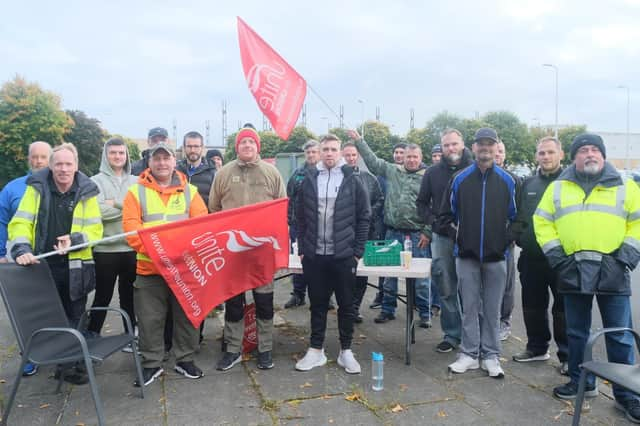Around 90% of NIHE workers struggling to make ends meet with 32% visiting foodbanks, Unite survey reveals


The survey of Unite’s members working for the NI Housing Executive showed that 73% are borrowing just to get by.
Most of those surveyed on the picket lines are skilled craft workers such as carpenters, plumbers and plasterers – whose counterparts in the private sector are paid much higher rates of pay.
Advertisement
Advertisement
A Unite spokesperson, speaking as the NIHE members strike over a 1.75% pay offer, said: “The failure of pay to keep pace with that elsewhere in the sector is resulting in an extensive staffing crisis.
-
-
"The workers are now into their eighth week of strike action and are seeking a pay increase above the meagre 1.75 percent offered by the National Joint Council for the 2021-2022 year. Unite is seeking all housing workers to have two pay point increases and a lump sum in addition to the national pay offer.
"The survey identified that a startling 95 percent of workers had suffered declining living standards, and that 96 percent worried either often or constantly about their household finances. More than 90 percent experienced trouble making ends meet and 73 percent admitted that they had had to borrow to get by. Shockingly 32 percent of these public sector workers had visited a foodbank in the last six months.”
Michael Keenan, Unite regional officer, blasted senior management at both the Housing Executive and Department of Communities for their refusal to address the huge issue of in-work poverty among housing workers:
Advertisement
Advertisement
“This survey confirms just how bad things are for Housing Executive workers who are now into their eighth week of strikes for pay increase. With one third of them now dependent on food banks, this confirms the scandalous impact of the failure to provide decent pay.
"Responses to the survey indicated that many housing workers were forced to take on second jobs or cut up wood to heat their houses. Many said that they couldn’t afford family days out or holidays,” Mr Keenan said. “Poverty pay is just not acceptable, especially from a public sector employer."
